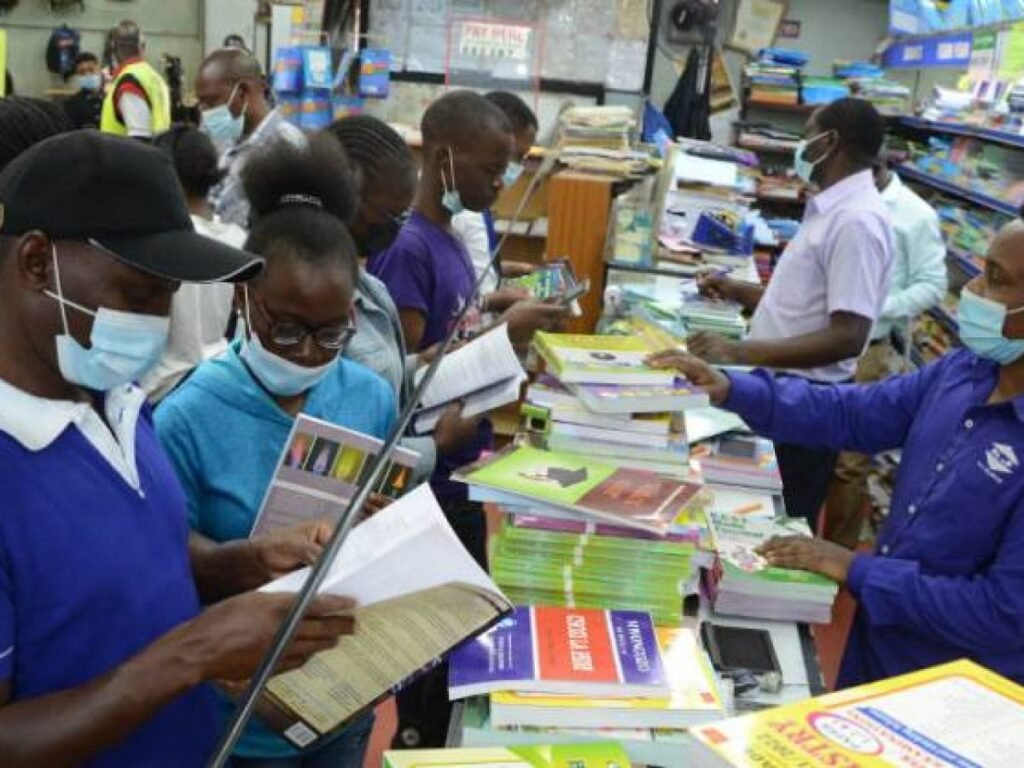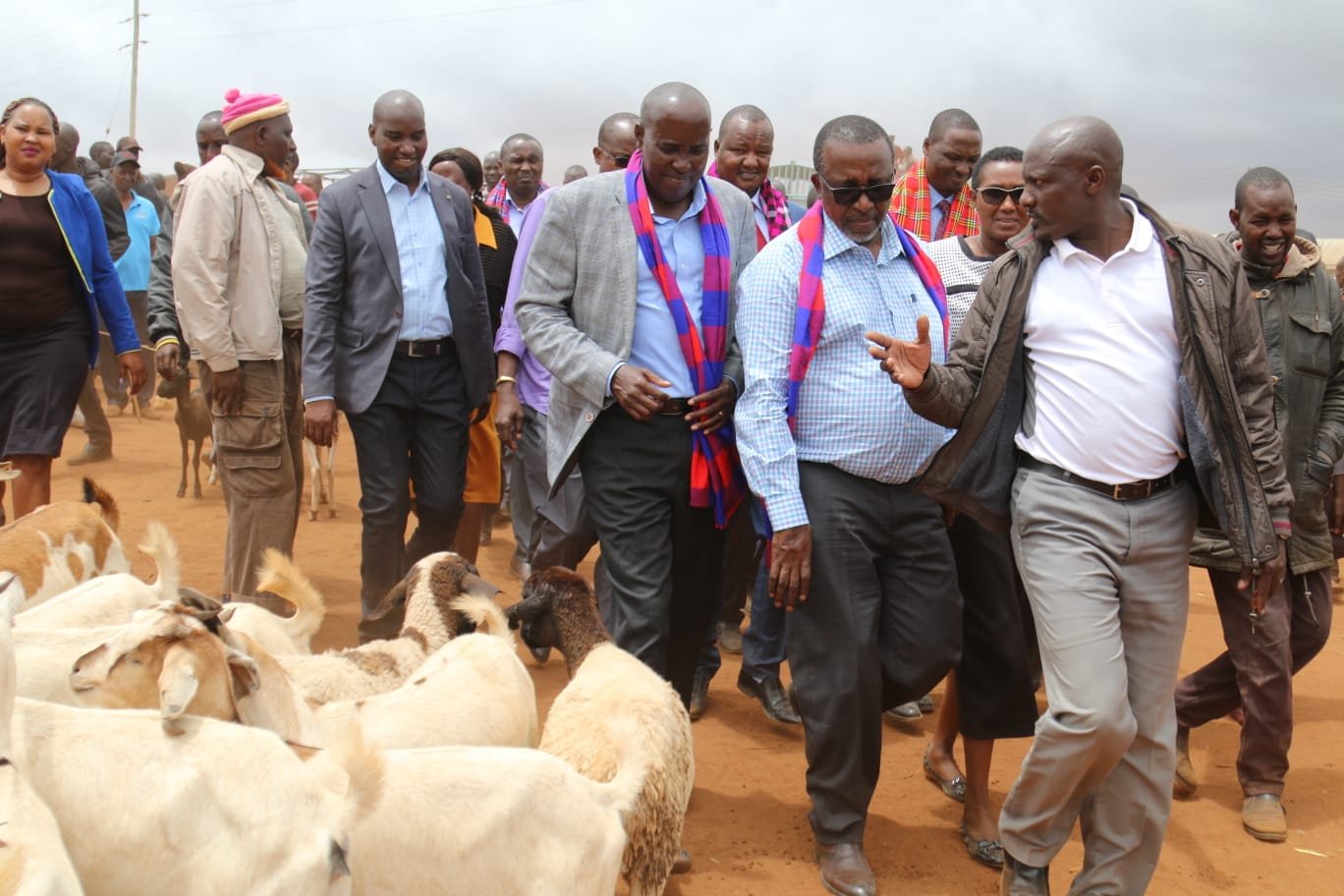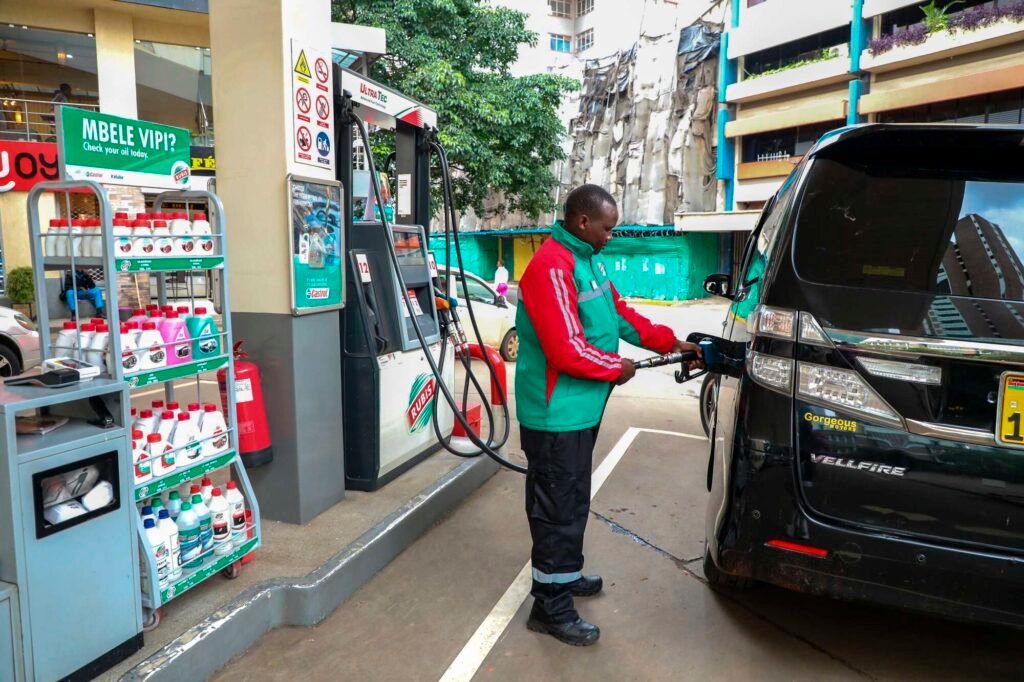General News
Parents in Meru County Turn to Second-Hand Books Amid Economic Hardships

As the back-to-school rush season unfolds in Meru County, a growing number of parents are making a strategic choice to purchase second-hand books for their children.
This decision stems from the challenging economic conditions that have prompted families to seek ways to cut costs.
Among these parents is Ms. Prisca Gakii, who revealed that opting for second-hand books allows her to save money, which can then be allocated towards essential expenses like school fees.
She highlighted a practical advantage for Form-One students, emphasizing that using older books can protect them from potential theft, as new books often become targets for less scrupulous classmates.

Ms. Gakii pointed out a notable price difference, citing an example of a new Oxford dictionary priced at almost Sh1,900, compared to a used one available for Sh1400.
She justified her preference for the older but more affordable option, emphasizing that they contain the same content.
Janet Wamuyu, a second-hand books trader, shed light on the lucrative nature of their business during the opening of the first term, which coincides with the peak season.
As learners transition to new grades or classes, there is a heightened demand for various books, including dictionaries, Kamusi, and Golden Bells.

Wamuyu explained that this period, especially when Form-One students are joining school, facilitates easy acquisition of books for new stock.
The trading process involves exchanging books for the next grade or class at a lower rate, providing an economical alternative for parents instead of purchasing an entirely new set of books.
She further noted that their source of new stock comes from parents whose children have completed their studies and no longer require the books.
Despite the success during the peak season, Wamuyu acknowledged the challenges faced during other times of the year when only a few revision books are in demand, highlighting the cyclical nature of the business in Meru County.
General News
IMF Criticizes Kenya’s Fuel Subsidy Re-Introduction, Warns of Budget Distortion

The International Monetary Fund (IMF) has criticized Kenya for re-implementing the fuel subsidy scheme, expressing concerns that the lack of funds to pay oil marketers could distort the budget.
Despite a previous commitment by President William Ruto in 2022 not to subsidize pump prices, the government reintroduced the subsidy, preventing petrol and diesel prices from reaching higher levels in October 2023.
The IMF argues that the subsidy was applied without available funds, as the Treasury has yet to pay oil marketers at least Ksh9 billion ($55.6 million) accumulated from the previous year. President Ruto’s decision to reinstate subsidies goes against conditions set by the IMF for accessing loans.
Petrol and diesel prices, which were Ksh217.36 ($1.34) and Ksh205.47 ($1.27) respectively in Nairobi in October 2023, remained lower than the potential Ksh220.43 ($1.36) and Ksh217.11 ($1.34) due to the subsidy. However, the IMF disapproves of the decision, emphasizing that the removal of the subsidy was a key condition for a 38-month budget support scheme.
The IMF criticizes the prolonged process of forming a taskforce and delays in implementing decisions regarding fuel pricing.
The removal of the subsidy in May of the previous year led to record-high pump prices, crossing the Ksh200-mark later in the year due to a combination of subsidy removal and a VAT increase to 16 percent.
Kenya’s administration, faced with rising fuel costs, chose to reinstate the subsidy, prompting the IMF to raise alarms over the lack of budgeted funds and potential distortions in the country’s financial plans.
The ongoing disagreement highlights the challenges and consequences associated with balancing domestic economic policies and meeting international financial commitments
General News
KMC’s Impact: Over 50,000 Livestock Slaughtered, Ksh2.2 Billion to Farmers

Defence Cabinet Secretary Aden Duale has reiterated the Ministry of Defence’s commitment to revitalize the Kenya Meat Commission (KMC), aiming to position it as a prominent and competitive producer of top-quality meat and meat products not just locally and regionally but internationally.
Speaking at the KMC Headquarters in Athi River during the signing of a performance contract between KMC and the Ministry, CS Duale emphasized the resolve of President William Ruto and the Commander-in-Chief of the Kenya Defence Forces to revolutionize both crop and livestock production for the benefit of farmers nationwide.
CS Duale signed the contract on behalf of the Ministry, with Lieutenant General (Rtd) Jackson Kasaon, Chairperson of KMC Board, signing on behalf of KMC.
The Defence Principal Secretary Patrick Mariru and KMC Managing Commissioner Brigadier James Githaga also signed a cascaded Performance Contract.
Highlighting the Ministry’s reputation for integrity, efficiency, professionalism, and prudent resource use, CS Duale affirmed that these values would guide the operation of the factory.
Following the contract signing, Ministry officials took a guided tour of the facility to familiarize themselves with its operational capacity and capability.
Commending the leadership for the remarkable turnaround of the facility, CS Duale emphasized the need for continuous improvement to boost farmer confidence in supplying livestock to the facility.
He urged the KMC leadership to embrace innovation for tapping additional revenue streams while reducing unnecessary expenditure.
“As the leadership of MoD, we assure you our total support to ensure that you accomplish what you envision in your Strategic Plan and what you’ve promised to achieve in the performance contract,” added CS Duale.
Since the Ministry of Defence took over the factory, over 50,000 herds of livestock have been slaughtered, translating to over Ksh2.2 billion paid to farmers spread across 37 counties.
Vice Chief of Defence Forces (VCDF) Lieutenant General Jonah Mwangi expressed gratitude to CS Duale for his strategic guidance, noting the potential to make KMC even more profitable.












